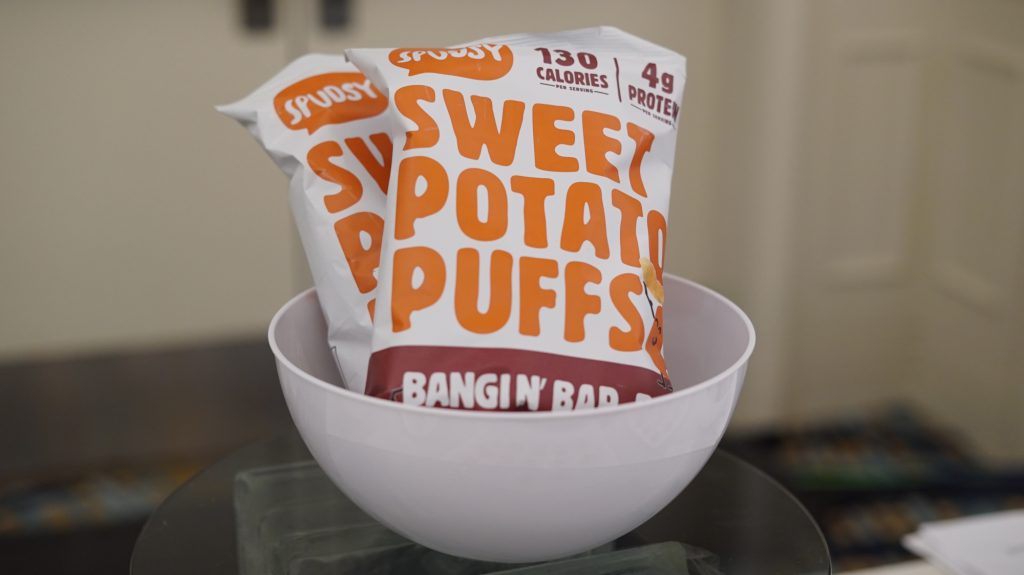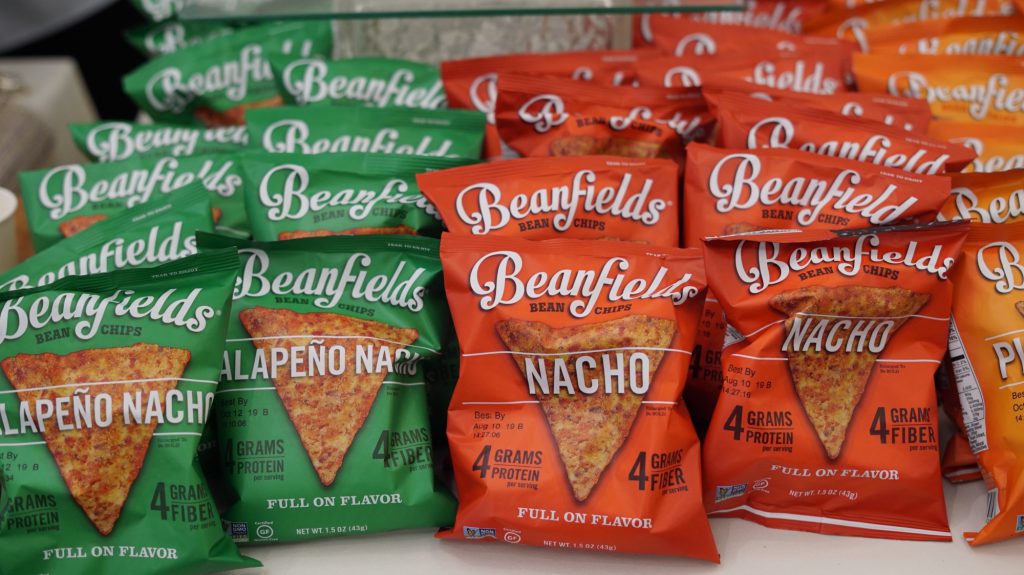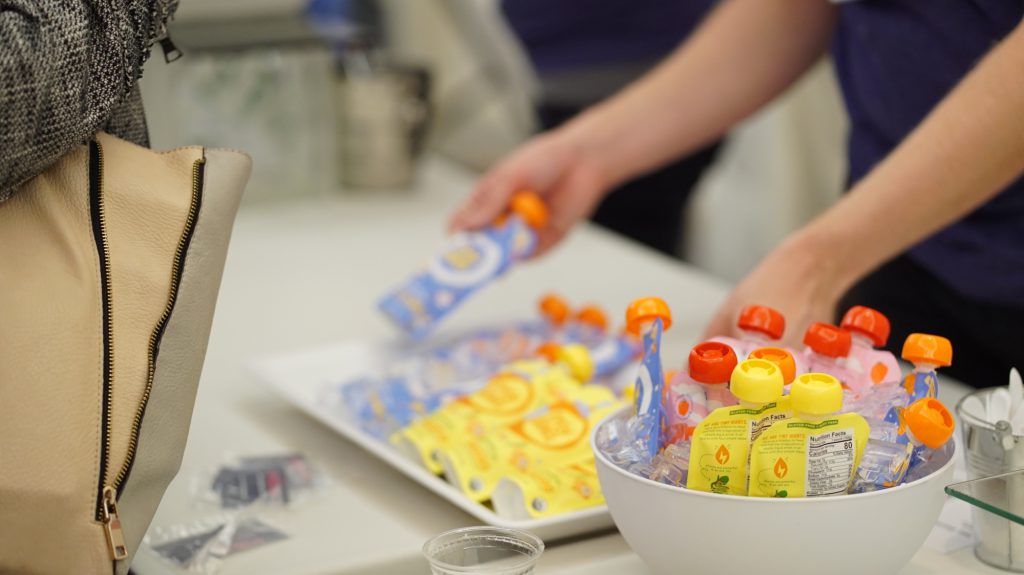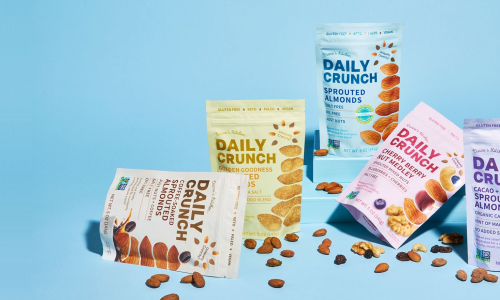Twice annually, NOSH Live hosts a conference to connect entrepreneurs and business leaders in the “natural, organic, sustainable, and healthy” sector. Speakers discuss case studies, best practices, and the latest developments in the natural foods industry. Attendees are invited to participate in Q&A sessions, check out promising startups, and sample tasty new products.
The NOSH Live Winter 2018 conference, sponsored in part by ForceBrands, took place November 29-30 in Santa Monica, Calif. Read on for some key insights offered by industry experts.
1. Rebranding can be risky — but can result in major rewards
Angie Bastion, the founder of BOOMCHICKAPOP, shared her journey to embracing authenticity in her brand, even when it meant taking financial risks. When Angie brought her BOOMCHICKAPOP kettle corn to market, it was a success, but her eventual goal was to build an inclusive brand identity centered on “positive energy and a sense of celebration,” rather than a single product. When the company expanded and began bringing unique new varieties like buttery caramel and chile lime popcorn to the shelves, they lost some customers in the short-term, but they also connected with new consumers and distributors and leveraged their successful rebranding into a $250 million sale to Conagra in 2015.
2. “Outsider” status can actually be a strength
Miguel Garza, Co-Founder and CEO of Siete Family Foods, shared one of the most important lessons his family had learned through their business: “The thing that we thought made us different … is actually our greatest strength.” The Garza family initially introduced their almond flour paleo tortillas under the brand name “Must Be Nutty” and considered adding products like paleo pizza crusts to their offerings. But when a mentor reminded them that their Mexican-American identity was drawing in customers, they realized that it was time to fully lean in to what made them stand out in the natural foods industry. They rebranded to Siete Family Foods, added tortilla chips and hot sauce to their line, and embraced the idea of “living in the hyphen” and growing within their niche rather than expanding to a new one.
3. Retailers are targeting two distinct categories of natural product consumers
In their presentation on Kroger’s strategy for natural and emerging brands, Alex Trott and Katherine Bousson explained the key differences between two typical customers with an interest in natural products who shop at Kroger supermarkets: “naturally essential” and “naturally mainstream.” Naturally essential consumers were seeking innovative products that they hadn’t seen elsewhere, while naturally mainstream consumers were looking for healthier versions of products they already enjoyed. For example, while one might be shopping for a green plant-based protein powder for morning smoothies, the other is simply looking for organic varieties of their favorite veggies.
But both types of consumers have something very important in common: price sensitivity. Naturally essential customers are more willing to splurge, but they’re still looking for great deals on healthy options, and offering promotions on new natural products has been one of the most effective ways to boost their initial sales.

4. “Personalized ways of eating are the new normal”
Crash diets of the past have given way to more sustainable, personalized diets, and this trend isn’t slowing down any time soon. In their presentation on “Natural and Organic in the Main Line,” Kathryn Peters and Brian Reed explained that “personalized ways of eating are the new normal.” These formerly niche markets are now part of the mainstream.
Peters and Reed reported that 88 percent of customers are now saying they care about what’s in their food, meaning natural, organic products that cater to plant-based, keto, paleo, Whole 30, or gluten-free consumers are becoming more appealing. It’s not just about creating a product — it’s about showing where your product fits into a certain shared lifestyle and establishing an emotional connection.
Seeking opportunities in the natural foods industry? Check out our job board.









